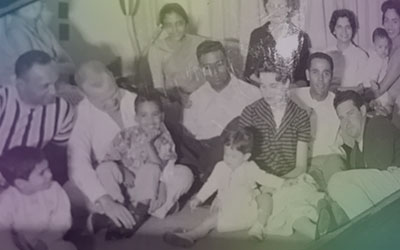
Harper’s sentence stayed in my head for days and still rings in my ears decades later. I spent the next six weeks interviewing CEOs, sat in on interviews, and reviewed engagement and exit interview data. All of that rigor led me to a duh moment: The habits around interviewing rely on communication rather than observed behavior, and that is not rational.
I geeked out and began testing different methods to change the design of our interview process. I wanted to make the whole process easier for everyone; unmask cognitive biases that kept us from selecting the people we needed most; and help us see behaviors in candidates, not words. In an interview, a candidate shouldn’t have to translate what is INSIDE themselves to us verbally. Instead, the process should be behavioral — an OUTERview, if you will — where they SHOW us who they are.
Which led me to ask: Do we make it easy for people to show us their basic values and behaviors?
Look for a value fit to the role over a cultural fit to the company
One of my first bosses had this thing he did during a job interview. He’d give the candidate a $5 bill and asked them to purchase two sodas. The cashier behind the counter was secretly instructed to give the candidate change for a $20 bill. What did the interviewee do in that moment? Did they:
A – Notice the error and quietly tell the cashier, so the till wasn’t short
B – Notice the error and pocket the cash
C – Notice the error and tell the interviewer so they “look good” and got the job
D – Not notice
When I was the candidate, I was an A.
My boss said the money experiment was an easy way to see if someone was a good cultural fit. Does the person notice details? Are they honest? Would they throw a fellow team member under the bus to get a job? I struggled a bit with the duplicity of the test, yet the outcome of confronting reality is so powerful. It forces us to validate actions, rather than just listen in an interview to a person saying all the right words.
My boss had the list of behaviors that mattered to him. What were mine? I asked myself: What primary behaviors are required for the role we’re hiring for?
Stack the Process with Required Behaviors
Before we could craft an interview, my team and I had to get very clear on the primary behaviors required for the role. Once we had the critical behaviors in mind, we could craft an intake process that made it easy to see if candidates excelled at those critical behaviors.
If a person must be detail-oriented, for example, our interview process should require a detail early on, in order for the candidate to move to the next step. We could ask ourselves: Did the candidate notice a detail and do what was required afterward? It is better not to waste someone’s time, or give them hope of getting a role, if that role isn’t right for them.
This is why we also decided to let candidates know it is okay to leave anytime, if they are clear we aren’t a good fit for them. Saving everyone time is a gift. Look for easy ways to insert these kinds of moments early in the interview process, which speak volumes about a candidate’s values and behavior.
It doesn’t mean a candidate’s behavior is right or wrong in general, of course: it’s about what behavior is important in the role. And to find that, we need to design an experience that helps candidates relax, so they can be who they really are.
The First In-person Outerview
A person may need a job, yet it is soul crushing to accept one that requires them to be inauthentic. If a particular role requires a lot of human interaction, make sure the outerview gives them the same type of moments they will have in the job. If a role requires someone to think on their feet, for example, develop ways for them to show that skill behaviorally.
Does a role require a person who treats strangers well, is a servant leader? Does it require someone who works well in a team? How about someone who can make deliberate, sometimes difficult trade-offs? Will the candidate be working with demanding people or in especially stressful contexts?
Think through the scenarios you can create to expose candidates to the situations and skills the role requires. This gives them a fair chance to show their values and behaviors in those moments. And be sure to really notice those behaviors. What questions does the candidate ask? How do they respond to the situations before them? What does the person do (and not do) naturally? Remember to notice in contexts outside more formal interview Q&A: How does a candidate speak, listen, and interact when ordering a coffee, or when a group interview disperses?
Outerview Observations
When I look back over my career and the hundreds of people I have hired, I notice that the one behavioral trait they all share is doing something to help others. In each outerview, there was a key moment when something happened in the room and, rather than sit still, the candidate behaviorally just had to do something to help.
Given this, it makes the most sense for me to set up ways for people to show me this behavior, rather than asking them how helpful they are. Most people will say they are helpful. But if a pen rolls off a desk, do they jump to grab it? If I’m struggling to hang up my coat, do they help? Do they give other people water around the table before pouring their own? Do they help a speaker untangle a mess he made or clean up after a group exercise?
I often find people I want to hire at events, based on how I see them behave at that event. I will never forget the time when one person I thought I might hire started talking crap about someone after she left the table. Another person jumped in and discounted the negative gossip in such a bad ass way — and I found the person I REALLY wanted on my team. Those are the moments when I am absolutely clear about who I want in my inner circle, versus the person who may be really great at the role yet toxic as hell.
If you are currently interviewing for a job yourself, read this post in reverse. Notice the behaviors of the company, not the stuff they say. An outerview is a tool for job seekers, too. Frankly, for all of us seeking to confront reality sooner, it is better to know ASAP if a company is not a good fit for us.
Years ago, I mentioned all of this to an audience of 300 people. I encouraged people to be REAL and authentic as a practice. A dude stood up in the back of the room and said, “I disagree. I would never hire you because you have the title ‘Princess’ on your business card.” The audience froze. I got super close to him and replied, “I just saved you and me a TON of time. Isn’t it better to know this NOW? How many of you, in this audience, figured out two years into a relationship what this dude just grokked in one word? I ain’t for you, pal. And if you don’t like the Princess title, you absolutely won’t like the cards that say ‘psychic wet nurse’.” The audience rolled.
The purpose of an interview is for both an organization and an individual to figure out, sooner than later, if there is magic — or not. Talking about ourselves rarely gives anyone else enough data, and almost never the data that most matters to them.


